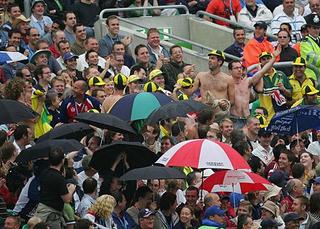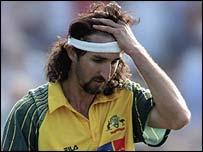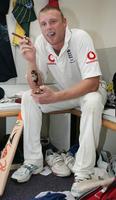
Watching No Direction Home on Tuesday and Wednesday this week - Martin Scorcese’s epic but hypnotic documentary about Bob Dylan’s career up to 1966 – was an eye-opener.
I’ve always known (and loved most of) the songs, but known virtually nothing about the man. The picture you get is that Dylan is a rare thing – a genuine enigma.
Virtually everything he says is a quite absurd, profound-sounding epigram that flutters on the edge of meaning something, though you’re not quite sure what. But at the same time he couldn’t be described as pretentious because he’s not pretending and he isn’t bothered about impressing anyone.
Several things struck me while watching the film. The first is that, as a person, nobody’s ever ‘got’ him, ever. Because of a few anthemic songs (Blowin’ in the Wind, The Times They Are A-Changing etc), his love of Woody Guthrie and his sympathy with the civil rights movement, he is held up as the darling of the folkie Left protest scene.
But, no matter how much he is cajoled by the likes of Pete Seeger and Joan Baez, he never turns up to any of the protests.
He is utterly indifferent to politics. Of Pete Seeger’s blacklisting, Dylan says “I guess I heard he was a Communist, I don’t know. I didn’t really know what a Communist was.” One of his contemporaries says “We thought Dylan was hopelessly politically naïve. But with hindsight maybe he was much smarter than we were.”
There’s a lot of footage of his 1966 tour, just after he infamously ‘turned electric’. The folk-loving audience, who’ve paid to see him, boo continuously throughout his set. One guy shouts out “Judas!” But Dylan barely flinches. He just carries on playing even louder with his band.
Dylan does what Dylan does, and if anybody else likes it, good. If not, Dylan does it anyway.
The best bits however, come in footage from various press conferences as he tours the world. He sits there all by himself while journalists ask him ever more ridiculous questions. One chap presses him to explain the spiritual significance of the motorcycle T-shirt he’s sporting on the cover of Highway 61 Revisited. “It’s just a T-shirt I happened to be wearing when they took the photo, man.”
Another drongo asks him: “How many protest singers are there following on from you, in America?”
“136” says Dylan, perfectly deadpan.
“136? Is that, is that an exact figure?” asks the hack, uncertainly.
“Actually, it could be 142.”
Time and again he’s given the opportunity to blow his own trumpet, to declare his own genius, to explain how his lyrics are insights into profound truths about the Human Condition.
But he’s just not interested.
So is it a case of the Emperor’s New Clothes? Is there nothing there at all behind the bizarre poetry?
I don’t think you could call honestly it empty.
‘My love, she speaks like silence’ isn't empty, it's Byronic. It could have been Coleridge dreaming about dancing beneath the diamond sky with one hand waving free, silhouetted by the sea.
He just seems to pull lines like “How many roads must a man walk down, before you call him a man?” out of the ether, and then be as surprised as everyone else that he’s done so.
The best description I could think of, watching No Direction Home, was idiot savant.









